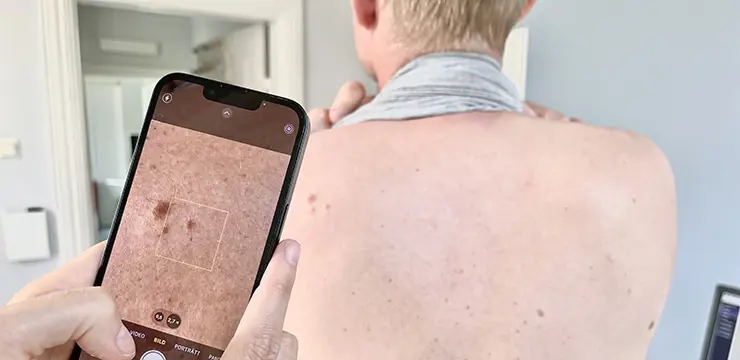Study shows: Skin cancer apps lack information and labelling

Early detection of malignant melanoma, a form of skin cancer, is crucial. Today, many mobile apps promise quick and convenient analysis of self-taken images of moles and birthmarks. Yet, it is difficult for an individual consumer to assess whether these apps meet the necessary standards, notes Åsa Ingvar, who has conducted two studies on AI-based apps for self-examination of skin lesions.
“To determine if an app is reliable, users need information on how it is constructed – and this is often lacking today,” says Åsa Ingvar.
The studies were conducted in Australia, aiming to investigate the type of labelling and information provided by manufacturers regarding these apps, and to propose guidelines for how the information should be presented.


